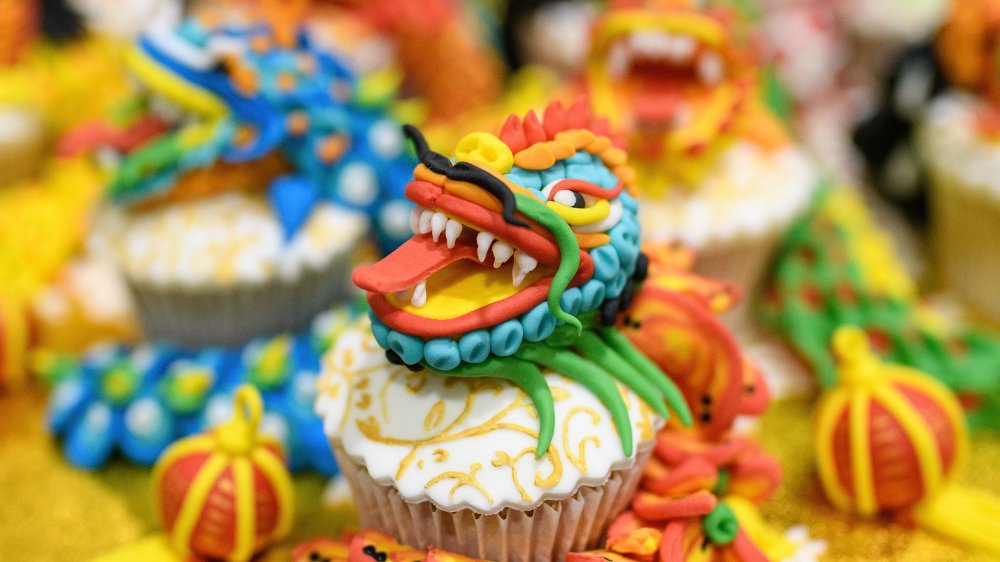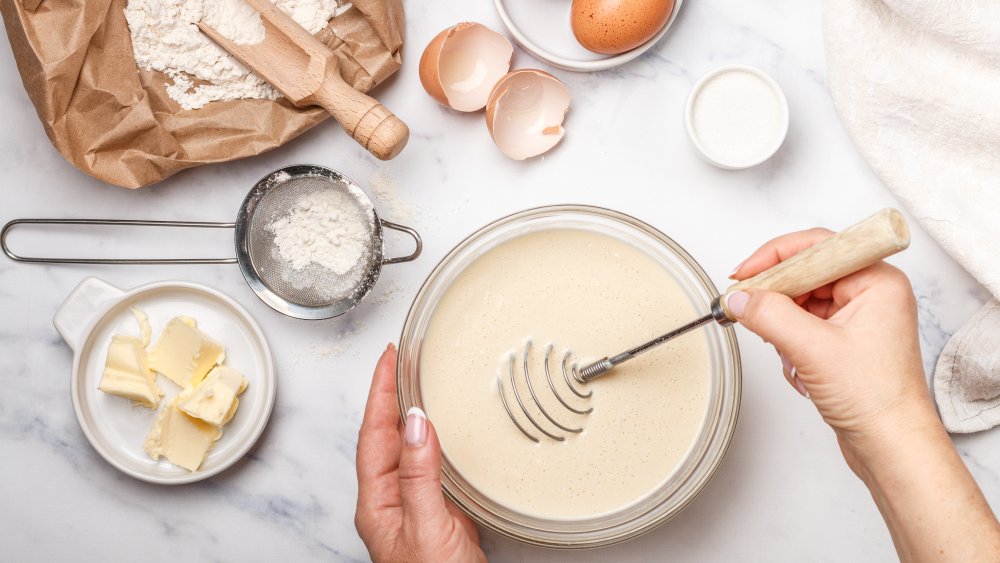Why People Are So Upset About The Great British Baking Show's Japanese Week
Perhaps nothing defines a culture more than its food. While food is something that's universal — we all need it, and we can all enjoy another culture's food — culture itself is definitely not universal. As Solid Ground's Groundviews blog discusses, it's okay to enjoy eating Panang curry if you're not Thai. What's suspect is opening a Thai restaurant as a white person and profiting from a culture that's not yours. This way to understand cultural appropriation — it's okay to bake Japanese steamed buns if you're British, but not okay to profit off them — already puts The Great British Baking Show on shaky ground.
Ruby Tandoh, a close observer of food culture and former contestant, wrote in Medium that the show (known in its home country as The Great British Bake Off) is both a symbol of old-fashioned white Britishness and the most well-loved food-competition on TV. So it might be inevitable for the show to get some criticism for airing a special "Japanese week" to lure viewers with another culture's food. Many of these viewers were already aware that the show's star judge, Paul Hollywood, had shown his cultural ignorance while touring Japan to film the show Paul Hollywood Eats Japan. For one thing, he assumed the Japanese don't bake at all (via Yahoo!).
Given Hollywood's blunders in his Japan show, which just aired earlier this year, what could go wrong with a Japanese week on The Great British Baking Show? Just about everything, apparently (via Yahoo!).
The show mangled Japanese culture in many ways
The first challenge of the show's first-ever Japanese episode, which aired October 27, was steamed buns (via Independent). Contestants filled their buns with Indian, Chinese, or American ingredients. One even decorated her buns with pandas, which live in China and have nothing to do with Japan. Actress Naoko Mori, who is Japanese, said on Twitter that the steamed buns were Chinese, not the type baked in Japan.
Mori also took issue with the next challenge, a French mille crepe cake with Japanese matcha powder. She tweeted, "A tiny token sprinkle of Matcha powder on a pancake doth not a Japanese make." The final, showstopper challenge was kawaii cakes, "kawaii" being Japanese for "cute." The word was repeatedly mispronounced on the show as "kowaii," which means "scary" — as @HippieDalek explained on Twitter.
Mori, on Twitter, summarized what was wrong with the Japanese week episode: "Not only was this insulting to us Japanese and our culture, you also likely insulted the Chinese, as well as the intelligence of a great many viewers of #gbbo."
It's understandable for The Great British Baking Show to veer into other cultures. After all, it couldn't have survived for 10 years by feeding off crumpets alone. But Mori, again on Twitter, had what amounted to good advice for the next time GBBO explores non-British baked goods: "... [O]ne would think — or at least hope — proper research and fact-checking is done before an episode like this is made."

